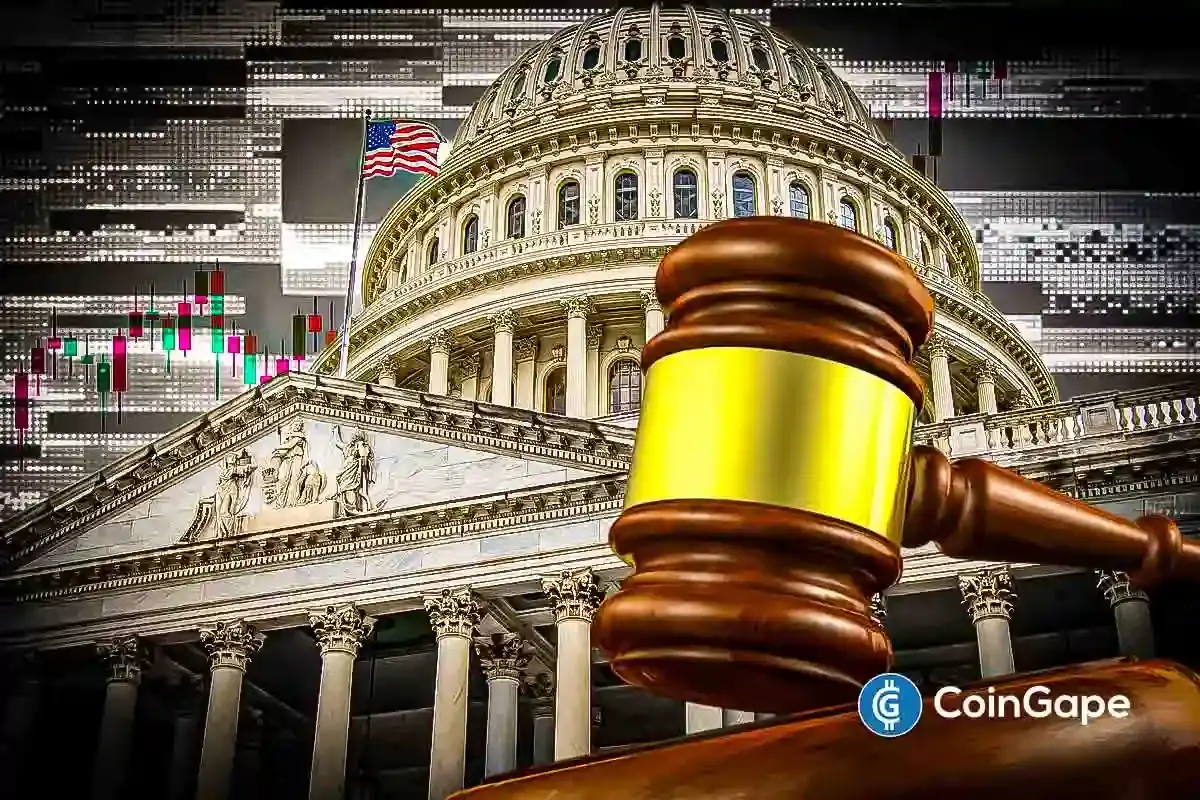US Senators Withdraw Support For GENIUS Act: Here’s Why

Highlights
- Ten US senators have rejected the GENIUS Act citing a string of concerns.
- The senators are seeking tighter anti-money laundering and national security rules.
- Stablecoin issuers are jostling to achieve regulatory compliance ahead of the passage of the GENIUS Act.
Plans for the smooth sailing of fresh stablecoin regulation have hit a curb following a group of Congressmen’s decision to withdraw their support. US senators are rejecting the GENIUS Act in its current form in a move that can derail the outcome of a final vote.
10 US Senators Will Not Vote In Favor Of The GENIUS Act
According to an X post by cryptocurrency journalist Eleanor Terrett, a group of US senators are poking holes in The Guiding And Establishing National Innovation For US Stablecoins (GENIUS Act) over its provisions. The senators, led by Ruben Gallego, have issued a joint statement criticizing the updated text of the stablecoin regulation.
Per the Congressmen, the GENIUS Act requires tighter provisions on anti-money laundering and national security guardrails. Furthermore, the group is pushing for additional provisions to protect the local financial ecosystem from undue disruptions.
The senators are raising concerns over the lack of clarity of foreign stablecoin issuers and the potential threat to national security. Finally, the joint statement takes swipes at the absence of stiff penalties for issuers that fail to meet the standards of the GENIUS Act.
A previous Coingape report notes that US senators will vote for the GENIUS Act before May 26. However, the senators will not vote for the bill in its current form unless the provisions are modified.
“While we are eager to continue working with our colleagues to address these issues, we would be unable to vote for cloture should the current version of the bill come to the floor.
Stablecoin Issuers May Face Disruption To Their Compliance Plans
While it seemed that the GENIUS Act was hurtling toward full approval, the joint statement by the group of senators complicated matters. For starters, there is a possibility that the dissent may grow, potentially affecting the voting outcomes and triggering a delay.
Bo Hines has previously predicted the rollout of stablecoin regulation before June, but fresh dissent could prolong the passage. If the bill fails to pass the House vote, there is the potential for reconsideration after fresh amendments.
Stablecoin issuers will be the hardest hit, with the delay affecting their short-term and mid-term plans. Ahead of incoming stablecoin regulation, Tether has unveiled plans to release a stablecoin for US users, going head-to-head with the USD1 stablecoin.
Amid the absence of regulatory clarity, Ripple has paused minting RLUSD stablecoins after crossing the $300 million market capitalization mark. A delay to the timeline of the GENIUS Act will affect the listing of WLFI’s USD1 stablecoin on centralized exchanges.
- UAE’s Second Largest Bank Eyes Bitcoin Allocation, Backs Tokenization
- Crypto Group Proposes Tax Rules To Boost Innovation As CLARITY Act Talks Progress
- XRP News: SBI Ripple Explores XRPL for Cross-Border Payments in Strategic Research
- Crypto Exchange HashKey Launches RWA Issuance for Institutions Amid Tokenization Boom
- Just-In: Ethereum Foundation Begins Staking 70,000 ETH, Futures Open Interest Bounces
- Pi Network Price Eyes a 30% Jump as Migrations Jumps to 16M
- Will Ethereum Price Dip to $1,500 as Vitalik Buterin Continues Selling ETH?
- XRP Price Outlook as Clarity Act Passage Odds Plunge to 53%
- COIN Stock Risks Crashing to $100 as Odds of US Striking Iran Jump
- MSTR Stock Price Predictions As Michael Saylor’s Strategy Makes 100th BTC Purchase
- Top 3 Meme Coins Price Prediction As BTC Crashes Below $67k

 Claim Card
Claim Card
















